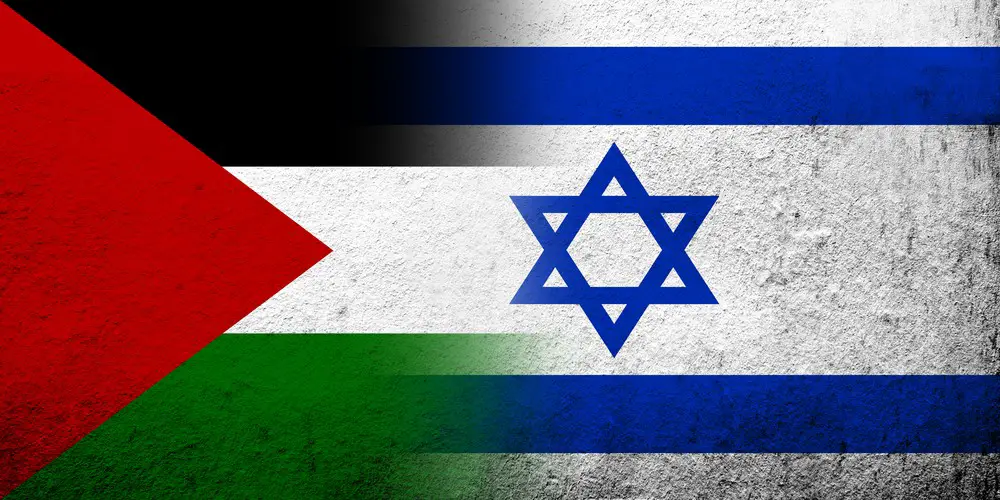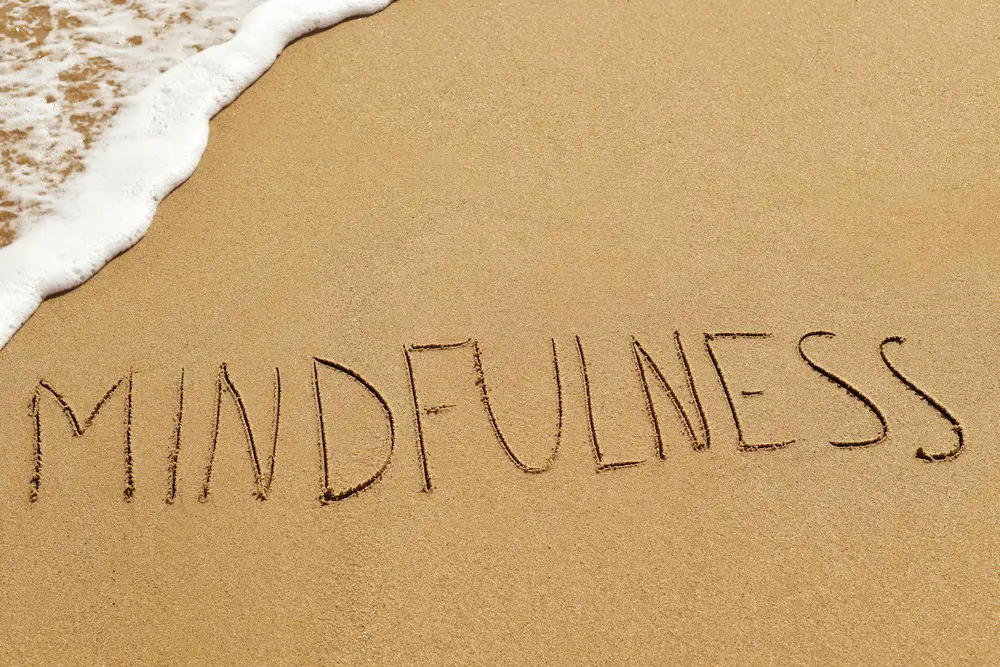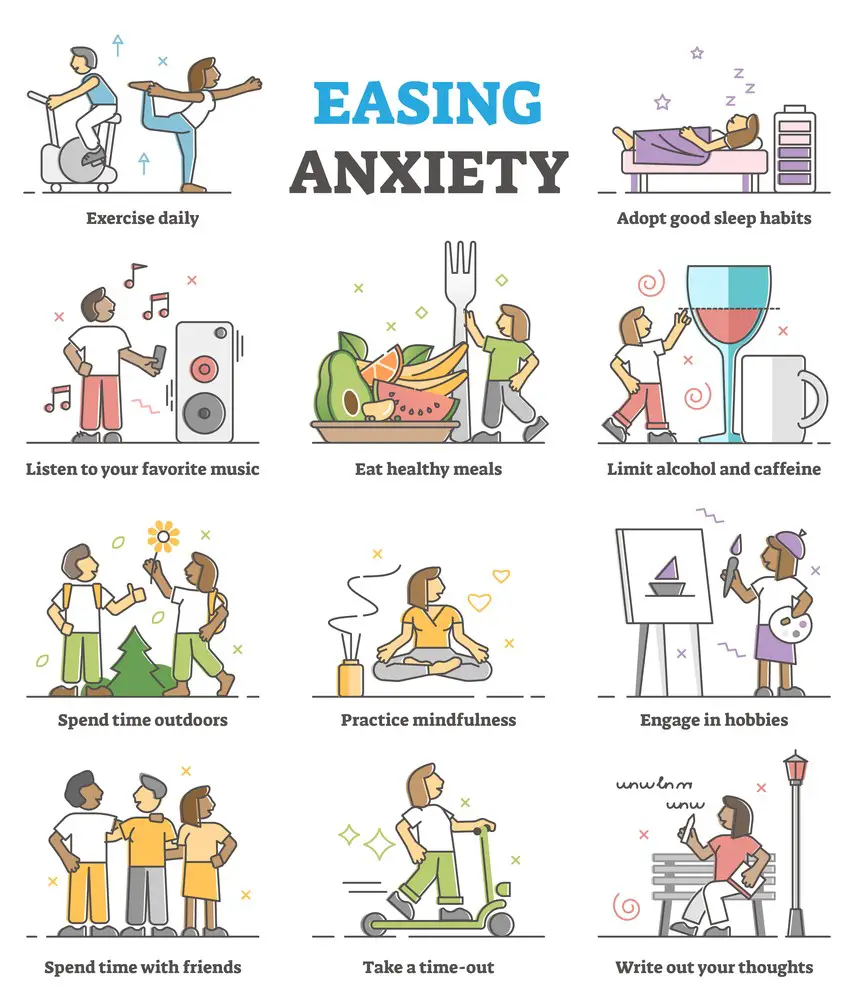As a BetterHelp affiliate, we receive compensation from BetterHelp if you purchase products or services through the links provided
In a world where the winds of war blow through the serene landscapes of our minds, the recent hostilities between Israel and Hamas have exacerbated the silent storm of anxiety for many. As the conflict unfolds with each passing day, the emotional tumult resonates across the globe, often knocking on the doors of our inner peace. This article, “Serenity Amidst Strife: Anxiety Tips During Israel-Hamas Hostilities,” aims to be a comforting companion through these trying times. It brings forth a bouquet of wisdom from six thought leaders who share their top tips on navigating the turbulent waters of anxiety. From nurturing self-compassion to setting boundaries around media consumption, these insights aspire to be the gentle lighthouse amidst the uncertainties. As we delve into their shared wisdom, we may find solace, understanding, and, most importantly, serenity amidst the strife.
Anxiety Alleviation: What’s your top tip for managing anxiety amidst the ongoing conflict in Israel? Here is what 6 thought leaders have to say.
- Prioritize Self-Care and Community Support
- Set a Limit on Media Consumption
- Adopt Structured Information Consumption
- Establish News Boundaries and Grounding Practices
- Engage in Enjoyable Activities
- Balance Information Intake and Mindfulness
 1. Prioritize Self-Care and Community Support
1. Prioritize Self-Care and Community Support
As the co-founder of Total Shape, a company deeply invested in promoting holistic health, I empathize with those experiencing anxiety during these situations.
My top tip for managing anxiety amidst such conflicts is prioritizing self-care and establishing a routine incorporating relaxation techniques. Engaging in mindfulness practices, such as meditation and deep breathing exercises, can significantly reduce anxiety levels. Encouraging individuals to carve out time for self-reflection and relaxation amid the chaos can provide stability and calmness.
Furthermore, staying connected with loved ones and fostering community is essential. Amid conflict, social support can act as a powerful buffer against anxiety. Encouraging open conversations about feelings and fears within the community can create a supportive environment where individuals can express their emotions without judgment.
Isaac Robertson, Co-Founder and Nutritionist, Total Shape
2. Set a Limit on Media Consumption
As a recruiter, I work with people from all walks of life, which gives me a firsthand look at the indiscriminate effect of conflict on even distant populations. Workers are not uncommon to be distracted or tense as news from the Middle East worsens. Pair that with a personal challenge, like finding a new role, and it’s a recipe for serious anxiety.
My top tip for anyone finding their stress challenging is to set a time limit on their media consumption.
Some people will tell you just to turn the news off, but this is not a reasonable request. People are compelled to check in daily, and in many sectors, at least a cursory understanding of the unfolding situation is necessary.
But setting a time limit on the amount of media you consume ensures you’re up-to-date, not spiraling into deep anxiety.
Travis Hann, Partner, Pender & Howe
3. Adopt Structured Information Consumption
Amidst the ongoing conflict in Israel, my top tip for managing anxiety is “Structured Information Consumption.” Continuous exposure to distressing news amplifies anxiety. Designate specific times daily for news updates and rely on trusted, neutral sources. Avoid sensationalist platforms.
Pair this with dedicated “unplug” periods, focusing on activities that foster well-being, like reading, meditation, or physical exercise. Engaging with supportive communities, whether religious, local, or online, can also offer solace. In times of external chaos, creating internal structure and finding safe spaces for emotional expression can be pivotal in maintaining mental equilibrium.
Richard Frankel, Disability Lawyer, Bross & Frankel, PA
4. Establish News Boundaries and Grounding Practices
Navigating the emotional toll of global conflicts, like the situation in Israel, is tough. My foremost advice is to set boundaries around news consumption. Continual exposure can amplify anxiety. Dedicate specific times to update yourself, and opt for trusted, balanced news sources.
Also, engage in grounding practices—meditation, deep breathing exercises, or simply walking in nature. Connecting with support groups or discussing feelings with trusted friends can offer perspective and reduce the sense of isolation. Remember, it’s okay to seek professional help if feelings become overwhelming. Prioritizing mental well-being is paramount.
Matthew Sims, Personal Injury Lawyer, Rapoport Weisberg & Sims, P.C.
 5. Engage in Enjoyable Activities
5. Engage in Enjoyable Activities
My one tip for managing anxiety is to take time to do something I enjoy to get my mind off it and away from the news. That could be taking a walk, cooking a meal, or meditating. The idea is that I have to stop with the ongoing, around-the-clock news coverage. That is what causes anxiety. Sometimes, you just need a break from it.
Michael Gorlovsky, Orthodontist, Windermere Orthodontics
 6. Balance Information Intake and Mindfulness
6. Balance Information Intake and Mindfulness
Managing anxiety amid ongoing conflict can be challenging, but some strategies may help you cope.
My top tip is to stay informed and limit exposure to graphic content. Staying informed about the situation is essential, but constantly watching or reading about the conflict can increase anxiety. Set specific times during the day to check the news, and stick to reliable sources. Avoid continuously refreshing news apps or social media, as this can lead to constant anxiety. Take a few minutes each day to practice mindfulness meditation or deep breathing exercises. These techniques can help ground you in the present moment and reduce anxiety.
Stick to a daily routine as much as possible. Predictability and structure can provide a sense of stability during uncertain times. Talk to friends and family for support. Share your feelings and concerns with someone you trust. Sometimes, discussing your worries can be a relief. Regular exercise can help.
Joe Li, Managing Director, CheckYa
 Implementing Expert Wisdom: A Step-by-Step Guide
Implementing Expert Wisdom: A Step-by-Step Guide
The trail of thoughts shared by our six experts can act as stepping stones toward managing anxiety amidst ongoing conflict. The beauty of their advice lies in its simplicity and actionable nature. Here, we distill their insights into an easy-to-follow guide:
- Embrace Self-Compassion:
- Establish a daily routine, including relaxation techniques such as meditation or deep breathing.
- Carve out moments for self-reflection, offering yourself kindness and understanding.
- Community Connectivity:
- Stay in touch with loved ones and engage in open conversations about your feelings and fears.
- Seek local or online support groups to share experiences and coping strategies.
- Mindful Media Consumption:
- Allocate specific times to catch up on the news, avoiding continuous exposure.
- Opt for balanced, neutral news sources, steering clear of sensationalist platforms.
- Structured Information Intake:
- Designate times for news updates and pair this with dedicated “unplug” periods.
- Engage in activities promoting well-being, such as reading, physical exercise, or enjoying a hobby.
- Grounding Practices:
- Explore grounding techniques like mindfulness meditation, deep breathing, or nature walks.
- Connect with support groups, discussing feelings with trusted friends or professionals.
- Balancing Awareness and Mindfulness:
- Limit exposure to graphic content while staying informed.
- Establish a predictable daily routine, incorporating moments of mindfulness and regular exercise.
 Recognizing When Professional Help is Needed
Recognizing When Professional Help is Needed
Sometimes, the steps toward self-help might need a supportive nudge from professional therapy. Here are some signs that seeking therapy could be a beneficial next step:
- Persistent feelings of anxiety that hinder daily life.
- Difficulty in sleeping or constant fatigue.
- A sense of hopelessness or overwhelming fear.
- Withdrawal from activities or relationships you once enjoyed.
- Physical symptoms like constant stomachaches or headaches.
Goal Setting: Your Personal Roadmap
Setting clear, achievable goals can act as a compass, guiding you through the fog of anxiety. Here’s how you could approach this:
- Please identify what you want to achieve, be it reducing anxiety symptoms or improving your coping strategies.
- Break down larger goals into smaller, manageable steps.
- Celebrate small victories; they are the milestones leading you toward tranquility.
Celebrating Progress: The Journey Towards Serenity
Recognizing and celebrating progress, however small, is crucial in maintaining motivation and continuing on the path of managing anxiety:
- Keep a journal to track your feelings and the strategies you’ve tried.
- Reflect on your journey regularly, acknowledging the progress made.
- Share your achievements with a supportive community, and continue to learn from others.
As we conclude, remember the path toward serenity amidst strife is a personal journey laden with learning, self-compassion, and gradual progress. Through the tapestry of expert advice and self-reflection, may the voyage lead to calmer shores amidst the stormy seas of life.
About Jacob Maslow
After surviving the traumatizing events of 9/11, I took it upon myself to heal through helping others. I’m the primary caregiver of my children and understand from first-hand experience the lonely paths you have to walk as a partner and parent when leaving an unhealthy relationship.
We’re all echoing in a dark space that doesn’t have to be this empty, and that’s been my mission since finding solace and recovery in therapy: To help comfort others who are still in shock and at the prime of their struggle.
I came across BetterHelp after searching for this type of community. I wanted to belong to a body of proactive therapists and supportive therapy veterans that allowed me to see other sides of the story.
It was unconventional, and that’s what attracted me most. During my most challenging times, when my ex-wife completely cut me off from my children, I found comfort and clarity through BetterHelp.
Instead of being chained to a strict therapist recommendation, I was in charge of who I felt understood my struggle most. That allowed me to find my true peace, as I was reunited with those who read behind my words and had first-hand experience with my trauma.
Recovery is a choice; with BetterHelp, that choice will be a few clicks away. You can join their couples-oriented platform, Regain.us, for those stuck with family estrangement and toxic relationship patterns.
This site contains affiliate links to products. We will receive a commission for purchases made through these links.


 1. Prioritize Self-Care and Community Support
1. Prioritize Self-Care and Community Support 5. Engage in Enjoyable Activities
5. Engage in Enjoyable Activities 6. Balance Information Intake and Mindfulness
6. Balance Information Intake and Mindfulness Implementing Expert Wisdom: A Step-by-Step Guide
Implementing Expert Wisdom: A Step-by-Step Guide Recognizing When Professional Help is Needed
Recognizing When Professional Help is Needed
